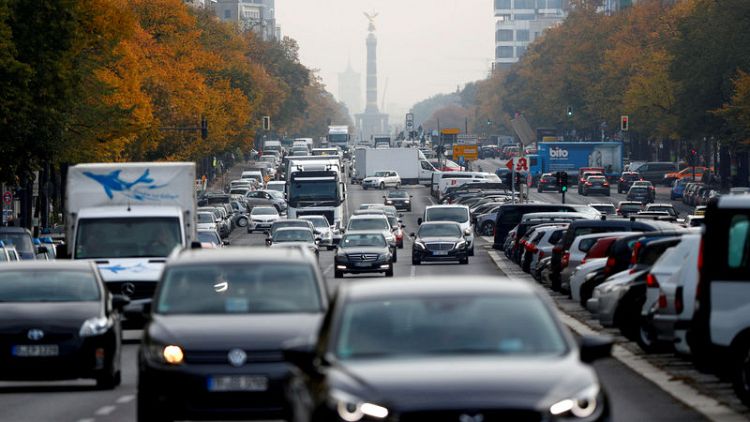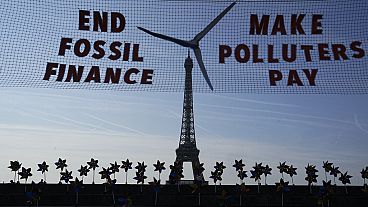BERLIN (Reuters) - German Chancellor Angela Merkel endorsed a hard-fought EU compromise deal for a 35 percent cut in car emissions by 2030, despite protests from her country's own carmakers, who said the target was unrealistic and that pursuing it would cost jobs.
Torn between reducing pollution and preserving industry competitiveness, EU environment ministers in Luxembourg talked for more than 13 hours on Tuesday to reach a compromise over what 2030 carbon dioxide limits to impose on Europe's powerful carmakers.
Asked on Wednesday at a Berlin news conference for her view on the deal, Merkel described the cuts pledges - softer than those demanded by some EU countries - as "defensible", partly because of the scope for later revising them.
"(There is) a revisions clause for 2021, since the question of how fast we can cut carbon dioxide emissions depends on the extent of market penetration by electric cars or other cars with alternative propulsion systems," she said. "Under these circumstances I think the agreement is wholly defensible."
The EU talks were lent added urgency by the publication of a U.N. report this week warning that time was running short for taking the rapid and unprecedented global action was needed to contain global warming.
The targets were harsher than the 30 percent cut wanted by Germany, with its vast auto industry, and the EU's executive, but far short of the 40 percent cuts some other member states were seeking.
While Merkel said the agreement at least provided certainty to European carmakers, the industry's umbrella group protested at the pace of the cuts envisaged and called for more public support for the transition to electric vehicles.
"It's very regrettable that a majority of EU member states didn't find it in themselves to strike a balance between climate protection and preserving jobs," said Bernhard Mattes, head of the VDA auto industry umbrella group.
Member state governments needed to take on more of the financial burden of building out networks of charging stations if they wanted swifter adoption of low-pollution electric cars, he added.
But, in an indication of the depths of divisions in environmentally-minded Germany over the role of its most important export industry, the toughened targets brought home from Luxembourg failed to win over the opposition.
"A 35 percent cut is nothing like enough for the challenges of tomorrow," said Greens leader Anton Hofreiter. "The government must take its foot off the brake in climate matters."
(Reporting by Michelle Martin and Edward Taylor; editing by Thomas Escritt and Louise Heavens)



